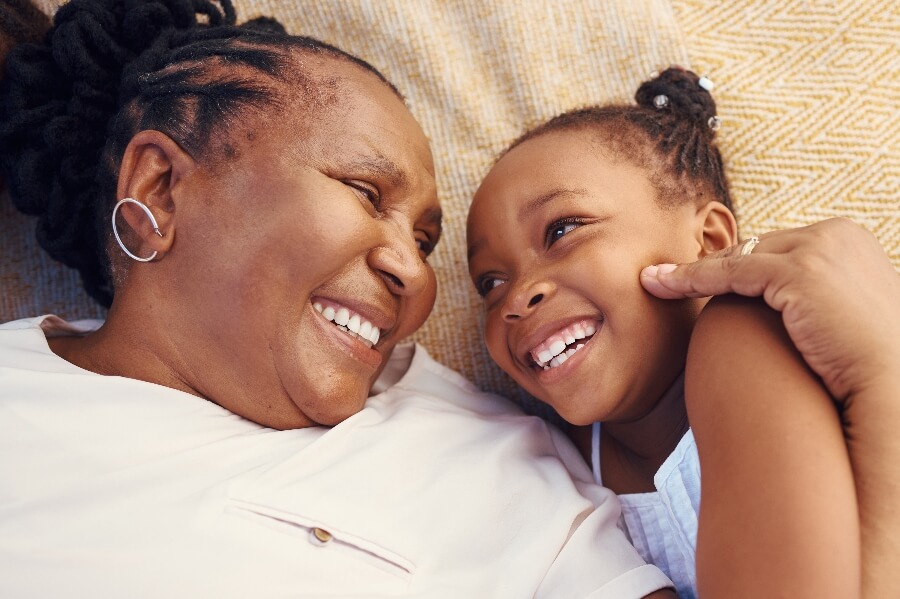
Why I Quit My Job to Take Care of My Grandkid
Many of us made a decision about leaving careers or not when we had kids. Here Amy Blacklock considers whether being a stay-at-home grandmother makes se...

“My Favorite Travel Souvenir Ever!”: Women Like You Share Their Stories
Secret sauce, hand-painted porcelain, a pup? Women like you share the amazing things they discovered while on a trip and still treasure back at home tod...

A Nostalgia Cure: Don’t Be the Oldest One in the Room
If you find yourself reminiscing to younger folk about your salad days, follow this writer’s lead and surround yourself with elders and tap your curio...

My French Do-Over: Two Trips, Two Husbands, and the Life In Between
Half a lifetime ago, Diane Cole took a transformative trip with her first husband. Could she—should she—recreate it with her second spouse?...

Back Pain Relief: In Search of A “Back Whisperer”
After years of crippling pain, reporter Cathryn Jakobson Ramin exposed the hype and hoaxes in the back pain industry and finally found relief. ...

Behind the Golden Bachelor Bombshell: Our Media Critic Has the Scoop
Excuse us?! Gerry and Theresa are divorcing after three months? Our media critic, who has smelled a rat all along, explains why it unraveled so fast. ...
- 4
- 1
- 2
- 3
- 4
- 5
- 6
- 7
- 8
- 9
- 10
- 11
- 12
- 13
- 14
- 15
- 16
- 17
- 18
- 19
- 20
- 21
- 22
- 23
- 24
- 25
- 26
- 27
- 28
- 29
- 30
- 31
- 32
- 33
- 34
- 35
- 36
- 37
- 38
- 39
- 40
- 41
- 42
- 43
- 44
- 45
- 46
- 47
- 48
- 49
- 50
- 51
- 52
- 53
- 54
- 55
- 56
- 57
- 58
- 59
- 60
- 61
- 62
- 63
- 64
- 65
- 66
- 67
- 68
- 69
- 70
- 71
- 72
- 73
- 74
- 75
- 76
- 77
- 78
- 79
- 80
- 81
- 82
- 83
- 84
- 85
- 86
- 87
- 88
- 89
- 90
- 91
- 92
- 93
- 94
- 95
- 96
- 97
- 98
- 99
- 100
- 101
- 102
- 103
- 104
- 105
- 106
- 107
- 108
- 109
- 110
- 111
- 112
- 113
- 114
- 115
- 116
- 117
- 118
- 119
- 120
- 121
- 122
- 123
- 124
- 125
- 126
- 127
- 128
- 129
- 130
- 131
- 132
- 133
- 134
- 135
- 136
- 137
- 138
- 139
- 140
- 141
- 142
- 143
- 144
- 145
- 146
- 147
- 148
- 149
- 150
- 151
- 152
- 153
- 154
- 155
- 156
- 157
- 158
- 159
- 160
- 161
- 162
- 163
- 164
- 165
- 166
- 167
- 168
- 169
- 170
- 171
- 172
- 173
- 174
- 175
- 176
- 177
- 178
- 179
- 180
- 181
- 182
- 183
- 184
- 185
- 186
- 187
- 188
- 189
- 190
- 191
- 192
- 193
- 194
- 195
- 196
- 197
- 198
- 199
- 200
- 201
- 202
- 203
- 204
- 205
- 206
- 207
- 208
- 209
- 210
- 211
- 212
- 213
- 214
- 215
- 216
- 217
- 218
- 219
- 220
- 221
- 222
- 223
- 224
- 225
- 226
- 227
- 228
- 229
- 230
- 231
- 232
- 233
- 234
- 235
- 236
- 237
- 238
- 239
- 240
- 241
- 242
- 243
- 244
- 245
- 246
- 247
- 248
- 249
- 250
- 251
- 252
- 253
- 254
- 255
- 256
- 257
- 258
- 259
- 260
- 261
- 262
- 263
- 264
- 265
- 266
- 5
Did you know we offer trips?
NextTribe offers small group travel experiences for women aged 45 and beyond. Our travelers are active and adventurous, open to meeting other women. If you want the benefits of traveling solo with the connection of a traveling community, you belong on a NextTribe trip.
Upcoming NextTribe Trips
View All Upcoming Trips
Become A Member

Our Facebook Page
Follow Us
Find your tribe
Connect and join a community of women over 45 who are dedicated to traveling and exploring the world.




